
A set of Eric Dolphy compositions and one Colonna composition in the style of Dolphy and a Dolphy-esque take on Billie Holiday's "God Bless the Child", from pianist Alexander Hawkins and Marco Colonna on clarinet, bass clarinet & sopranino saxophones, recorded live in Rome in 2020 for a spirited and tender hommage to one of the great and most singular figures in jazz history.
In Stock
Quantity in Basket: None
Log In to use our Wish List
Shipping Weight: 3.00 units
EU & UK Customers:
Discogs.com can handle your VAT payments
So please order through Discogs
Sample The Album:
Marco Colonna-clarinet, bass clarinet, sopranino saxophone
Alexander Hawkins-piano
Click an artist name above to see in-stock items for that artist.
UPC: 5905279364837
Label: Listen! Foundation (Fundacja Sluchaj!)
Catalog ID: FSR 25 | 2020
Squidco Product Code: 29801
Format: CD
Condition: New
Released: 2020
Country: Poland
Packaging: Cardboard Gatefold
Recorded live in Rome, Italy, in February, 2020.
"Over time, jazz has developed the habit of attributing curious nicknames to its protagonists, resulting in a colorful bestiary of descriptors.
For a start, it's a world teeming with 'cats'. We also find the Bear, Fox, Hawk, Rabbit, Stork, Frog, and perhaps by way of climax: Bird.
For our subject, however, the discourse changes, and we have to deal with fantastical zoology: that of Borges, of Kafka's Odradek, Cortázar's Adberkukus, or Tommaso Landolfi's Vipistrello.
We have to do this because ERIC ALLAN DOLPHY Jr., born in Los Angeles in 1928 and died in 1964 in Berlin, is one of the most unclassifiable musicians to have navigated the skies of modern jazz. On bass clarinet, he staked out an unprecedentedly virtuosic territory within the Afro-American improvisational practice; he liberated the flute into spaces similarly exotic to those contemporary 'densities' of Edgar Varese or Gazzelloni (as a result of the latter's attendance at Darmstadt); and finally, on alto sax, although it was the instrument on which he was perhaps most rooted in the (Parkerian) tradition, he transgressed the bop vernacular with his intervallic and rhythmic logic. His instruments represent the plumage, the claws, beak and fangs which could not be categorized among the known species until the appearance on the scene of our man.
Moreover, with some exceptions, his compositions cannot be pigeon-holed. With their unpredictable harmonic relations, wide compass, awkward and sudden gaps (all the while with a certain 'songfulness'), and their orchestration, which above all in the last works, such as Out To Lunch and Other Aspects, sees him bringing jazz into the territories of 'Total Music', these compositions can be defined as the natural habitat for the imaginary animal Dolphy (whilst a potentially treacherous one for his collaborators).
Having said that, the reflection on how it is possible to face and "capture" the spirit of this Phoenix par excellence comes spontaneously. It is an intrinsic difficulty shared with a few other composers of the time, who decided in the 1960s to delineate a language in which references to common jargon, automatism, and the mainstream often lost any effectiveness: in this sense, as for Dolphy, so with Monk, Ornette, Lacy, or Don Cherry, to name but a few.
The great territories of songs and 'standards' are certainly open and inclusive to the point that even today, everyone can navigate them without risk of misunderstanding, so long as they communicate in a codified language (which nonetheless, of course, allows for personal 'accents').
It is different in the world of Dolphy, however. Here, it is easy to give in to the temptation of a 'lectio restituta', an exercise in style, with the unfortunate consequence of trying to force square pegs into round holes. To free oneself from the perils of a tribute which becomes a quicksand, it is necessary to have - in addition to undoubted skills of technical and interpretative control - a creative focus that manipulates the material not only to formulate a new version of this or that song but also has the goal of building new authorship, with the starting point of Eric Dolphy's songbook.
Marco Colonna and Alexander Hawkins are undoubtedly two of the personalities of the new generations who possess these qualities; and indeed, these are the primary tactical tools of their philosophical vision of making music. They belong to that group of free improvisers who have behind them a severe preparation; and whose approach to interplay, soloing, and contrapuntal invention essentially moves along the same Cartesian axes as European academic rigor. They are musicians distant from the naïveté of a historicized radicalism by now in its 70s, just as they are distant from a certain equally historicized Afro-American lexicon. Colonna and Hawkins fully represent the new era of 'conscious research', and for this reason, I think I am not mistaken in saying that they have taken into account a figure such as Anthony Braxton, who certainly more than many others has taken on board Dolphy's message.
From the first notes of 'Miss Ann', it is understood that the theme and harmonies will only be flags inserted on a map that involves the extrapolation of inspirational shreds, such as the opening incipit that becomes in Hawkins' fingers a swirling and 'guilloche' game that speeds up and slows down, while Colonna supports it with the colloquial tenor of the bass clarinet, projecting towards an epic crescendo wrapped in the extremes of the piano register, a prelude to the exposition of the theme at very high speed.
'Something Sweet, Something Tender' has a Messiaen-ic trend. The layers of sound, full of harmonics (needless to say, quite deliberate), remind me of the atmosphere of the 'Catalogue d'Oiseaux'. The two solo pieces, 'Serene' by Hawkins and 'God Bless The Child' by Colonna, take us on different trajectories, according to which our observers are looking at compositional strategies and interpretative memories of the Californian musician. They are complementary trajectories, in which the longing of the jazz musician (which Dolphy however undoubtedly also was) tries to find a Passepartout towards a greater universality of language.
After all, the use of the blues, albeit oblique, albeit visionary and dazed (as in '245'), which closes the sincere, meditative, but also a passionate reflection of Colonna and Hawkins, faced with that indolence and that de-tuning in the thematic exposition, best summarizes the intention of two musicians who want, without slavishly imitating him, to thank Dolphy for having given us a free space of branches, clouds, luminous rays and spectral darks in which to continue to play, and always put our capacity to invent on the line.
Indeed, Eric Dolphy could not be in better hands and heads."-Roberto Ottaviano, from the liner notes

The Squid's Ear!
Artist Biographies
• Show Bio for Marco Colonna "Marco Colonna, born in Rome on 21/12/1978, began playing the clarinet at the age of eight. Active for about twenty years in the most varied musical environments, it is formed under the guidance of Piero Quarta and Gaetano Zocconali, attends the Conservatory Licinio Refice of Frosinone and is perfected in the seminars with Alfredo impulliti and Achille Succi in jazz. He specializes in the performance of contemporary music with the master Harry Sparnaay. At the same time he deals with music for theater, cinema and documentaries, collaborating with Rai Trade and with the companies Centro Mediterraneo delle Arti, Artes, Piccolo Brancaccio, L'Orologio. Dedicator of many works for bass clarinet and double bass clarinet only - by composers such as Giorgio Colombo Taccani, Dan Di Maggio, Sofia Mikaelyan, Shigeru Kan No - participates in the Venice Biennale and at the Festival Cinque giorni in Milan, with a program of first performances for double bass clarinet only. In jazz he plays with Andrew Cyrille, Gebhard Ulmann, Omar Tamez, Ivano Nardi, Michele Rabbia, Silvia Bolognesi, Eugenio Colombo, Antonello Salis, Butch Morris, Fabrizio Spera, Roberto Bellatalla, Evan Parker, Ettore Fioravanti, Alessandro Giachero, Francesco Cusa, Cristiano Calcagnile, Roberto Del Piano, Massimo Falascone, Stefano Giust, Giovanni Maier, and Zlatko Kaucic. Signed in 2014 among the best new talents and musicians for the magazine Musica Jazz, it is also distinguished in the categories Baritone Sax and Other Instruments for the magazine Jazz It. Coproduce together with Fonterossa Records of Silvia Bolognesi the DESMADRE disc in duo with Agusti Fernandez, and Ghost Trio with Silvia Bolognesi and Ivano Nardi for Setola Di Maiale. His Unity group was premiered at the Sala A of Radio Tre and aired in prime time for Radio 3 Suite. He writes an article dedicated to FRED HO on Jazz Music that follows ideally his work for baritone saxophone " The Joyful Breath of the Dragon ". Always the same magazine publishes the UNITY disk of the homonymous group, quintet led by him, characterized by the peculiar three-wind training, whose fundamental presence is the bassoon, the piano and the drums. His trio MC3 was produced by the Roman club Ventotto Di Vino and offers a synthesis between groove, Mediterranean origins and free improvisation. He collaborates and accompanies Alberto Masala's readings, in concerts for voice and clarinets on the poet's lyrics. Participates in International Festivals such as Roccella Jonica, Musica Sulle Bocche, Visiones, Encuentro di Jazz and Musica Viva. In the folk field he plays in the group Acquaragia Drom with which he records a record (Rom Kaffè) and realizes tours in Mexico, USA, Malaysia, France, Spain, Portugal, Greece, Germany and throughout Italy, participating in the main World Music festivals such as Sziget (Hungary), Rain Forest World Music Festival (Malaysia), Rome Meet the World, NYC Gipsy Festival. Reported by Musica Jazz magazine among the best young talents of Italian jazz in 2012. Luigi Onori dedicates to him a page on Alias del Manifesto, calling him "One of the best creators of music of his generation".He writes the text FRAGMENT which becomes a musical scene for voice and clarinets. Activates a stable collaboration with the musician Vaggelis Merkouris on the Mediterranean repertoire. Fonda Duo Apolide together with the bandoneonist Carlo Maver." ^ Hide Bio for Marco Colonna • Show Bio for Alexander Hawkins "Alexander Hawkins is a composer, pianist, organist, and bandleader who is 'unlike anything else in modern creative music' (Ni Kantu) and whose recent work has reached a 'dazzling new apex' (Downbeat). A largely self-taught improviser, he works in a vast array of creative contexts. His own highly distinctive soundworld is forged through the search to reconcile both his love of free improvisation and profound fascination with composition and structure. In 2012, he was chosen as a member of the first edition of the London Symphony Orchestra's 'Soundhub' scheme for young composers. He also received a major BBC commission in late 2012 for a fifty minute composition: One Tree Found was first performed and broadcast in March 2013, and was subsequently performed and broadcast for the WDR in Cologne (2014). He has also twice been commissioned by the London Jazz Festival (once as composer, once as an arranger), and by the Cheltenham Jazz Festival (2016). An in-demand sideman, Hawkins continues to be heard live and on record with vast array of contemporary leaders of all generations, including the likes of Evan Parker, John Surman, Joe McPhee, Mulatu Astatke, Wadada Leo Smith, Anthony Braxton, Marshall Allen, Rob Mazurek, Taylor Ho Bynum, and Harris Eisenstadt, amongst many others. He has also been noted in recent years for his performances in the bands of legendary South African drummer, Louis Moholo-Moholo. Concert appearances have taken him to club, concert and festival stages worldwide." ^ Hide Bio for Alexander Hawkins
7/7/2025
Have a better biography or biography source? Please Contact Us so that we can update this biography.
7/7/2025
Have a better biography or biography source? Please Contact Us so that we can update this biography.
Track Listing:
1. Miss Ann 5:24
2. Out to lunch 7:55
3. Something sweet something tender 9:02
4. Serene 4:22
5. Gazzelloni 3:47
6. Straight up and down 5:57
7. God bless the child 4:38
8. Frame 4:18
9. 245 7.08
Improvised Music
Jazz
Free Improvisation
European Improvisation, Composition and Experimental Forms
London & UK Improv & Related Scenes
Melodic and Lyrical Jazz
Duo Recordings
Staff Picks & Recommended Items
Jazz & Improvisation Based on Compositions
Search for other titles on the label:
Listen! Foundation (Fundacja Sluchaj!).

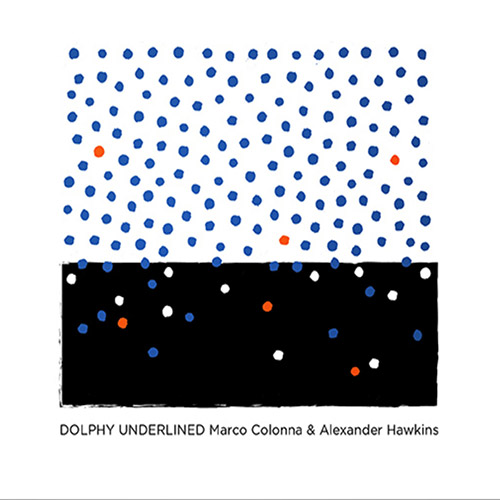
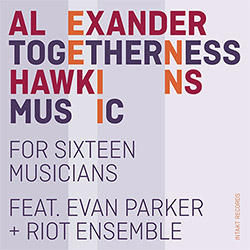


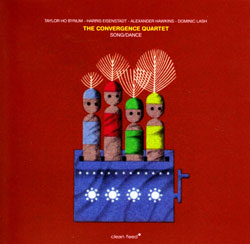



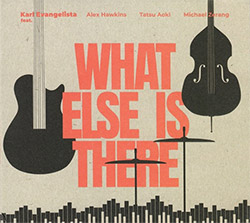
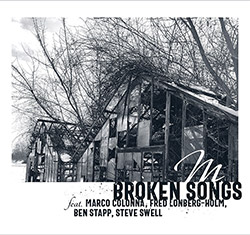
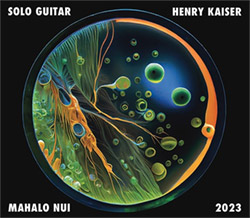
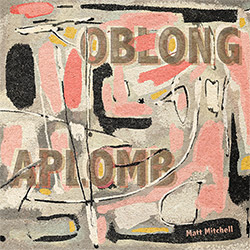
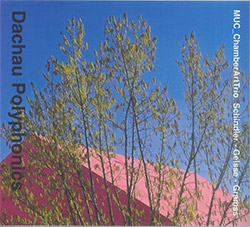
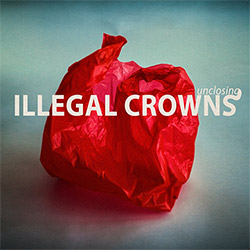


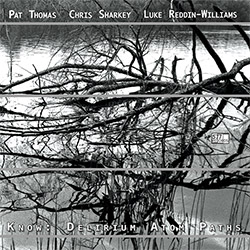
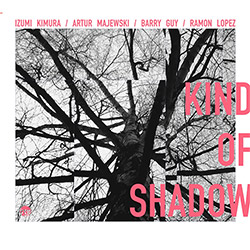

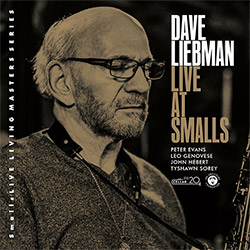
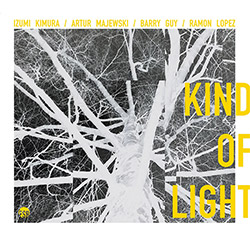


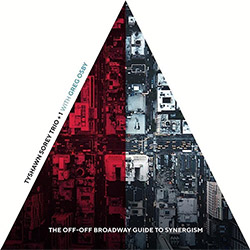
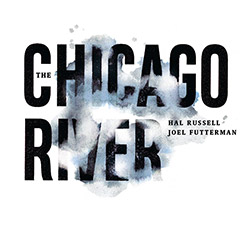

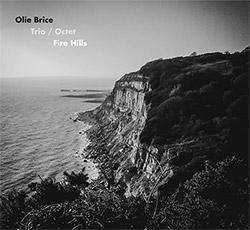






![+DOG+: The Light Of Our Lives [2 CDs]](https://www.teuthida.com/productImages/misc4/36009.jpg)


![Parker, Evan / Jean-Marc Foussat: Insolence [VINYL]](https://www.teuthida.com/productImages/misc4/36398.jpg)










![Deupree, Jerome / Sylvie Courvoisier / Lester St. Louis / Joe Morris: Canyon [2 CDs]](https://www.teuthida.com/productImages/misc4/36404.jpg)


![Eternities: Rides Again [CASSETTE]](https://www.teuthida.com/productImages/misc4/36247.jpg)

![Lopez, Francisco: Untitled (2021-2022) [2 CDs]](https://www.teuthida.com/productImages/misc4/36438.jpg)




![Eventless Plot | Haarvol: The Subliminal Paths [CASSETTE + DOWNLOAD]](https://www.teuthida.com/productImages/misc4/36232.jpg)







![Eventless Plot | Francesco Covarino: Methexis [CASSETTE + DOWNLOAD]](https://www.teuthida.com/productImages/misc4/36231.jpg)



![Das B (Mazen Kerbaj / Mike Majkowski / Magda Mayas / Tony Buck): Love [VINYL]](https://www.teuthida.com/productImages/misc4/36329.jpg)



![Hemphill Stringtet, The: Plays the Music of Julius Hemphill [VINYL]](https://www.teuthida.com/productImages/misc4/36409.jpg)









![Money : Money 2 [2 CDs]](https://www.teuthida.com/productImages/misc4/35894.jpg)




![Klinga, Erik: Elusive Shimmer [VINYL]](https://www.teuthida.com/productImages/misc4/36258.jpg)
![CHANGES TO blind (Phil Zampino): Volume 9 - I Wave on a Fine Vile Mist [CD + DOWNLOAD]](https://www.teuthida.com/productImages/misc4/36061.jpg)

![Wallmart / Rubbish: Asset Protection [split CD]](https://www.teuthida.com/productImages/misc4/35900.jpg)


![+Dog+: The Family Music Book Vol. 5 [2 CDs]](https://www.teuthida.com/productImages/misc4/35897.jpg)
![Kuvveti, Deli : Kuslar Soyledi [CASSETTE w/ DOWNLOAD]](https://www.teuthida.com/productImages/misc4/36107.jpg)

![Nakayama, Tetsuya: Edo Wan [CASSETTE w/ DOWNLOAD]](https://www.teuthida.com/productImages/misc4/36105.jpg)

![Brown, Dan / Dan Reynolds: Live At The Grange Hall [unauthorized][CASSETTE]](https://www.teuthida.com/productImages/misc4/36245.jpg)








![Palestine, Charlemagne / Seppe Gebruers: Beyondddddd The Notessssss [VINYL]](https://www.teuthida.com/productImages/misc4/36206.jpg)
![Palestine, Charlemagne / Seppe Gebruers: Beyondddddd The Notessssss [NEON GREEN VINYL]](https://www.teuthida.com/productImages/misc4/36207.jpg)

![Laubrock, Ingrid: Purposing The Air [2 CDs]](https://www.teuthida.com/productImages/misc4/35639.jpg)

![Yoko, Ono / The Great Learning Orchestra: Selected Recordings From Grapefruit [2 CDs]](https://www.teuthida.com/productImages/misc4/35841.jpg)









![Zorn, John / JACK Quartet: The Complete String Quartets [2 CDs]](https://www.teuthida.com/productImages/misc4/35609.jpg)

![Lonsdale, Eden: Dawnings [2 CDs]](https://www.teuthida.com/productImages/misc4/35480.jpg)



![Sorry For Laughing (G. Whitlow / M. Bates / Dave-Id / E. Ka-Spel): Rain Flowers [2 CDS]](https://www.teuthida.com/productImages/misc4/35985.jpg)

![Rolando, Tommaso / Andy Moor : Biscotti [CASSETTE w/ DOWNLOADS]](https://www.teuthida.com/productImages/misc4/36106.jpg)


![Electric Bird Noise / Derek Roddy: 8-10-22 [CD EP]](https://www.teuthida.com/productImages/misc4/35970.jpg)








![Elephant9 : Mythical River [VINYL]](https://www.teuthida.com/productImages/misc4/34624.jpg)



![Elephant9 with Terje Rypdal: Catching Fire [VINYL 2 LPs]](https://www.teuthida.com/productImages/misc4/35355.jpg)
![Deerlady (Obomsawin, Mali / Magdalena Abrego): Greatest Hits [VINYL]](https://www.teuthida.com/productImages/misc4/34876.jpg)







![Surplus 1980: Illusion of Consistency [CD]](https://www.teuthida.com/productImages/misc4/35069.jpg)
![Staiano, Moe: Away Towards the Light [VINYL + DOWNLOAD]](https://www.teuthida.com/productImages/misc4/35037.jpg)
![Coley, Byron: Dating Tips for Touring Bands [VINYL]](https://www.teuthida.com/productImages/misc4/17906.jpg)

![Lost Kisses: My Life is Sad & Funny [DVD]](https://www.teuthida.com/productImages/misc4/lostKissesDVD.jpg)